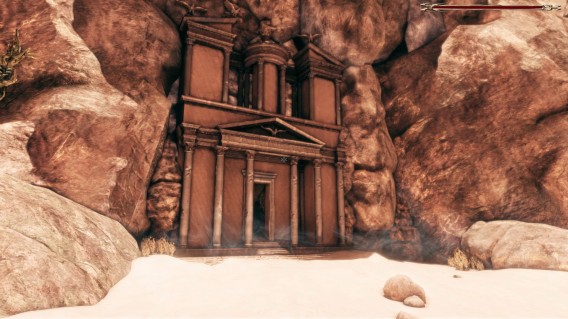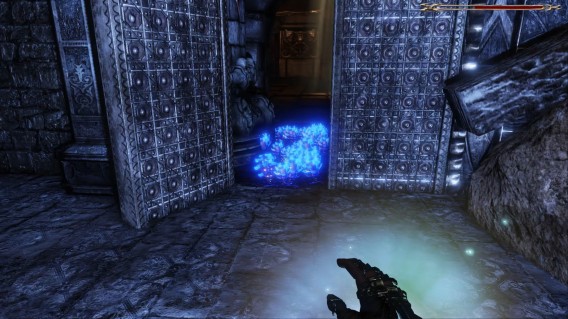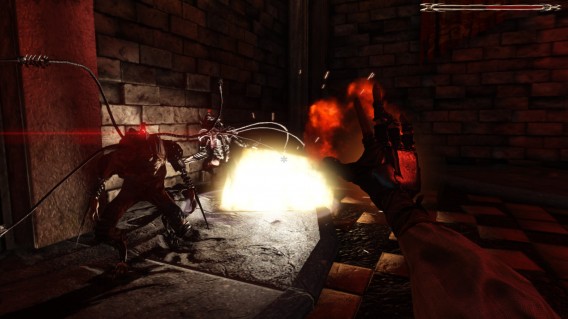It’s not often that the description of a single element of a game is enough to make me want to play it. But, on hearing that In Verbis Virtus is a first person game where you have to solve puzzles using magic you actually have to say aloud, I knew I had to give it a try.
This caught my interest for two reasons. First and foremost is that I am a big kid, and actually having to say a spell in order to cast it made me feel about seven years old. The connection I imagined this creating with the action felt like it would draw me into the game world, especially as I would have memorize the different fanciful words to command the mystic powers.
Moving beyond this, the practicalities of implementing voice controls fascinated me. There have been a number of games over the years that have used voice, but most were far from successful. Even games that limited their oral interactions to specific moments and commands – like yes and no – seemed to struggle to accurately hear me.
It was due to these past experiences that I tempered my childish joy and began with a little skepticism. With movement controlled using the mouse or game-pad, the majority of the action came as second nature. So, as initially I had no powers, I began by exploring In Verbis Virtus’s environments.
Escaping a parched desert to take shelter in an ancient tomb, In Verbis Virtus managed to quickly establish the solitary and other worldly nature of the game. Descending in to the catacombs of an ancient civilization, filled with magic runes and glowing crystals to illuminate my path, I felt like an explorer.

Soon after this I got my first taste of magic, and this revealed how the game was going to handle its spells. Rather than simply yelling into my microphone, it was necessary to hold the right trigger to cast. Once my hand came up I could speak and (impressively often) the game would accurately determine which spell I had used.
This control system made it feel almost like a first-person shooter, with the right trigger acting like an aim button before my words shot magic into the world. But, while it is an elegant solution to the problems with voice recognition, it made the whole thing feel a little contrived.

It didn’t take long to move beyond this, however, and soon I was plunging into the depths to discover that In Verbis Vertus is about far more than just casting spells. While the first person problem solving may evoke thoughts of Portal and The Talos Principle (with a little additional combat), the reality adds an unexpected element of adventure gaming.
You must read all of the runes and texts you find in the world, because often the information they contain is needed to divine the path forward. These puzzles are not too obscure, but they do demand a satisfying level of thought to solve.

An early example of this crossover between the texts and the environmental problem solving highlighted an issue I had with In Verbis Virtus. Often charging things with magic or waiting for an event to trigger takes too long. When a puzzle has you looking away from a statue and then back towards it (not to give too much away), fast reinforcement of your action is necessary. Without this, it is easy to think you were wrong, causing you to search for an alternate solution. Thus you can eliminate the right answer accidentally and find yourself stuck looking for a different answer that doesn’t exist.
Despite this minor complaint, venturing deeper into In Verbis Vertus’s dark caverns and mystical world is something I am deeply looking forward to. For more information check out my full review.
Related Stories
Greenlight Spotlight: Will Fight for Food
Greenlight Spotlight: Tormentum – Dark Sorrow
Crypt of the NecroDancer review
Follow me on Twitter: @DoFuss


